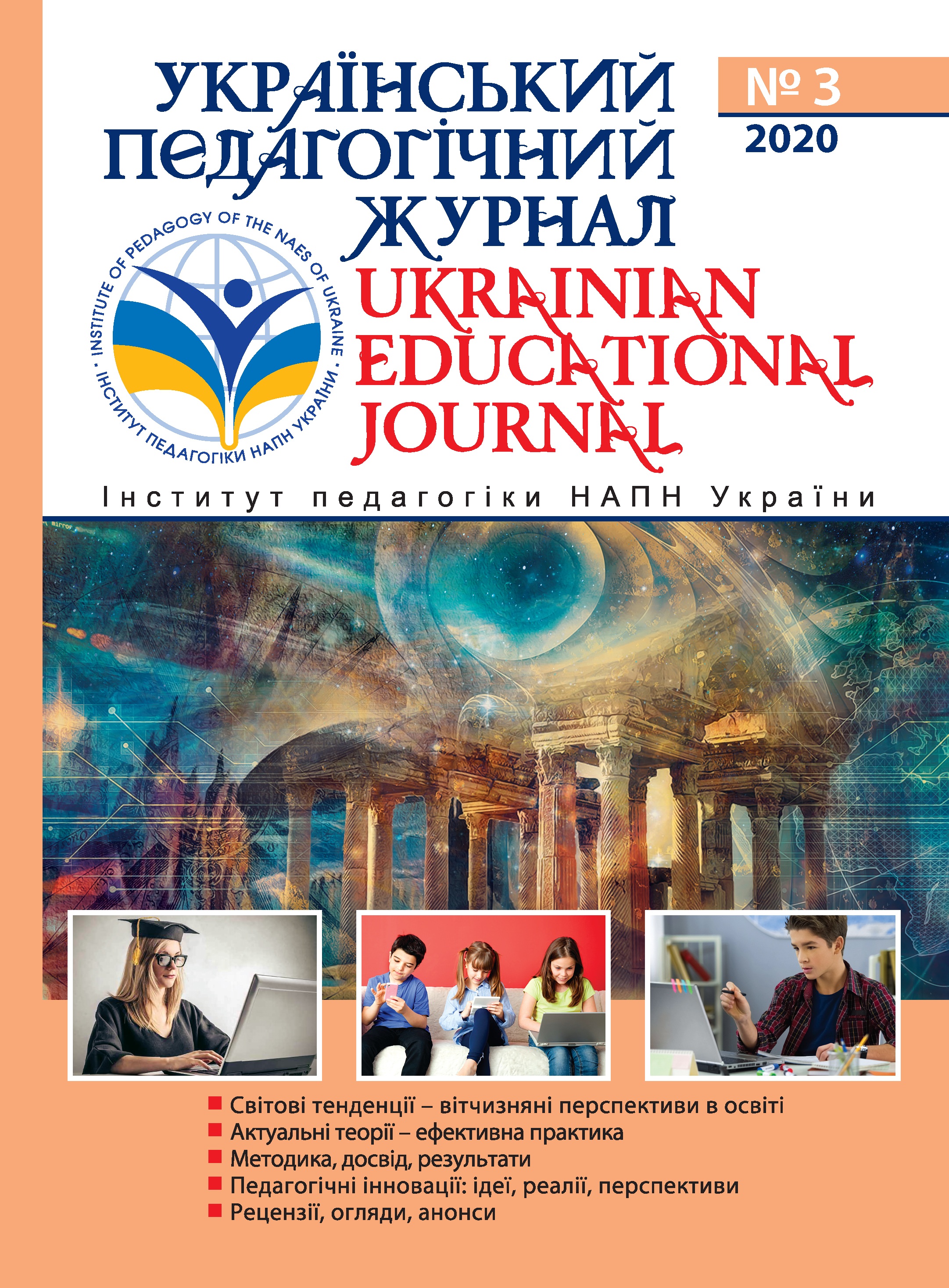Abstract
In the article, basing on the analysis of the development trends in modern multilingual education in Ukraine and the research accomplished in experimental Ukrainian institutions of secondary education teaching languages of national minorities, the content and functions of multilingual communicative competence resulting from integrated teaching of several languages (native, state and foreign) in the context of multilingual education are defined and established. The aforementioned structure is described and the key skills for the development of the multilingual communicative competence are determined. The basic features of a learner personality evolving in the process of multilingual communicative competence acquisition are ascertained. In European countries, multilingual education is implemented according to different models in conformity with the general mission of the language policy of a state and the tasks pertinent to each area, school or class considering the linguistic situation and enrolment, expectations of parents and representatives of the communities.
In Ukraine, each region is characterized by the respective national and cultural peculiarities and the incorporation thereof is deemed to be the prerequisite for the efficient implementation of multilingual education.
In 2016-2021, upon the initiative of the Ministry of education of Ukraine and with the support of the OSCE High Commissioner on National Minorities, a pilot study “The formation of multilingualism of children and pupils: European experience in the Ukrainian context” was conducted in Chernivtsi, Odesa and Zakarpattia regions. Its aim was to evaluate the implementation of multilingual education in view of the multi-ethnic composition of the respective regions. The authors of the article joined the aforementioned experiment as experts. The results suggest that the education programs for multilingual education, which proved their efficiency in a number of European countries, are deemed to be promising and prospective for their implementation in Ukraine. In implementing the model of the multilingual education in secondary education institutions, a specific multilingual and multicultural environment is created providing the conditions for the efficient integrated teaching of several languages and enabling the development of multilingual personality of a learner.

This work is licensed under a Creative Commons Attribution-NonCommercial-ShareAlike 4.0 International License.

